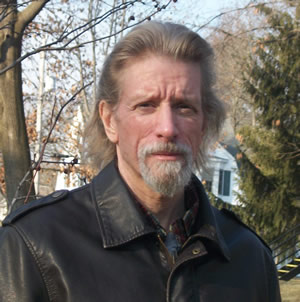|
We humans are wired for language, which means speaking should come naturally to us. And so it seems, as toddlers gurgle first a word, then a phrase, then a sentence. We hear our name, we turn; someone asks a question, we answer. But what's natural about written language? Adolescent Tarzan, raised by apes, discovers shelves of books in the jungle cabin left by his long-dead parents. When he opens them, he finds the pages covered with little black bugs he can't wipe away. Eventually, he finds a primer, connects the "bug" symbols with the pictures, and teaches himself to read. But since he had no clue what sounds his "bugs" represented, he didn't learn to speak until much later. So what went on in young Tarzan's mind when he read dialogue?
I remember flipping ahead in the picture-less "grown up" books I read as a child, hoping for some dialogue to break up what seemed like interminable blocks of prose. The extra white space around the quoted words gave my eyes a break, and the characters' voices came to me like breaths of fresh air—as if a window had been opened mid-text, letting in the sounds of "real life." And realistic sounding dialogue is important. Mark Twain comments on his use of dialect in an introductory note to Huckleberry Finn: "In this book a number of dialects are used… The shadings have not been done in a hap-hazard fashion … but pains-takingly… I make this explanation for the reason that without it many readers would suppose that all these characters were trying to talk alike and not succeeding."
But the purpose of words set off by quotation marks isn't just to mimic human speech. The "realism" of the dialogue is an illusion created by the artist-writer, just as Michelangelo's beautiful and imposing David is not a precise duplication of the human figure: the statue's hands and head are overly large, exaggerated in size in order to appear proportionate when viewed from below. In fiction writing, perspective is controlled by the author: "The house of fiction," Henry James writes in the preface to Portrait of a Lady, "has in short not one window, but a million… but they are, singly, as nothing without the posted presence of the watcher—without, in other words the consciousness of the artist."
Writer-artists manipulate dialogue to serve their literary purposes. As part of the general economy of fiction composition, a speaker must be saying something while saying something. In The Great Gatsby, for example, Fitzgerald uses dialogue to comment both indirectly and directly on his themes. Gatsby throws his expensive clothes on his bed, and Daisy reacts:
"They're such beautiful shirts," she sobbed, her voice muffled in the thick folds. "It makes me sad because I've never seen such—such beautiful shirts before."
What sentiments lie behind Daisy's emotional words? Is she so "material" that a few expensive shirts overwhelm her? Is she moved by the complex implications of her rediscovered lover's wealth? The words Fitzgerald has her speak make both readings available.
Later, Nick and Gatsby discuss Daisy's appeal:
"She's got an indiscreet voice," [Nick] remarked, "It's full of—" he hesitated.
"Her voice is full of money," [Gatsby] said suddenly."
No indirection here. Fitzgerald captures Gatsby's obsession with Daisy in a single metaphor.
An author can also choreograph a verbal exchange to maximize its thematic effect. At the conclusion of Flannery O'Connor's "A Good Man is Hard to Find," The Misfit speaks with one of his henchmen:
"Take her off and throw her [the murdered grandmother] where you thrown the others," he said picking up the cat that was rubbing itself against his leg.
"She was a talker, wasn't she?" Bobby Lee said, sliding down the ditch with a yodel.
"She would have been a good woman," The Misfit said, "if it had been somebody there to shoot her every minute of her life."
"Some fun!" Bobby Lee said.
"Shut up, Bobby Lee," The Misfit said. "It's no real pleasure in life."
The Misfit's commentary builds to its solemn conclusion, gaining momentum as he responds to Bobby Lee's outbursts. O'Connor lets The Misfit's language do the work—the repeated tag-word for the exchange is the neutral "said." And though O'Connor has invented The Misfit's dialect—something between homespun slang and elegiac sermonizing—no reader questions its "naturalness." And no reader is likely to forget The Misfit's words.
So "natural," "realistic" dialogue—the kind I still look forward to as a breath of fresh air in a dense text—is actually a subterfuge. Like everything else in a work of fiction, quoted words and phrases are inventions created to serve the purposes of the author. Paradoxically, because the meaning behind spoken language may be subtle, understanding it might demand more, not less, of the reader. Don't dialogue's whispered words lure us to the nearest open window in the House of Fiction, forcing us to eavesdrop with all our might?
|


